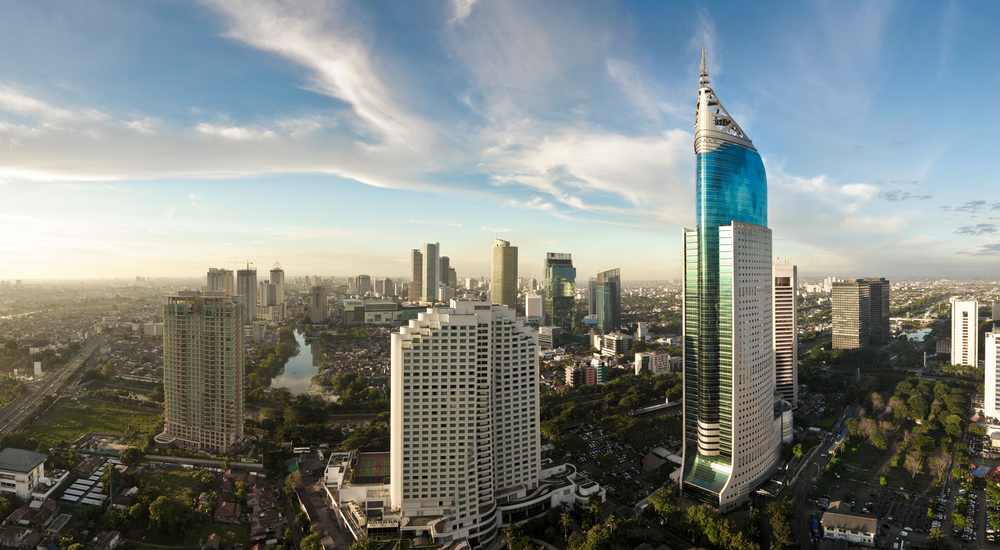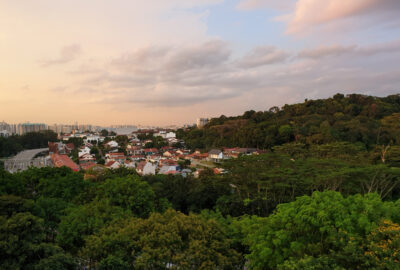Government rolls the dice: Indonesia’s bid to revitalise real estate ahead of elections
Indonesia’s outgoing government is banking on tax breaks on property purchases and incentives for foreign buyers to revive the country’s residential sector

Like the calm before a storm, Indonesia’s property market goes quiet before an election.
While no political storm is expected to accompany February’s result, the market remains cautious.
Behind the scenes, however, the incumbent government has been working to ensure the property market is in better shape when it leaves, following years of sluggish growth.
The segment most in need of a boost is the apartment sector which has virtually flatlined over the past five years and faces a challenging start in 2024.
In the past three years, demand for units has been largely driven by end users rather than investors. And those who intend to live in a property are most attracted to ready-made units.
Since the pandemic, the supply of new apartments has slowed in line with a slowdown in sales, resulting in a chicken-and-egg situation. With demand low, developers are reluctant to build new stock. And without the promise of fully built units, buyers are not willing to commit to projects under construction.
That has led to disappointing data, especially in Jakarta, where apartment prices have increased by only 1.73 percent from 2020 to 2023, according to Colliers.
On the supply side, the apartment sector contributed only 13,927 new units from a total of 24 projects from 2020 to 2023, a 60 percent decrease compared to the three years before the pandemic.
The picture has been similar to Indonesia’s second-largest city, Surabaya, where prices have moved slowly and are expected to grow by just two to three percent by the end of 2025.
Demand for landed housing, by contrast, remains strong across the country.
“Over the past year, we have seen mixed results in the property market,” says Vivin Harsanto, senior director at JLL Indonesia.

“Landed residential, logistics, and data centres are still strong, whilst retail is relatively stable. Office and high-rise residential are on the slower side due to the amount of supply in the market and market sentiment for buying condominiums. Lastly, there’s lots of activity in the industrial real estate market, and the hotel business has returned to its pre-pandemic level.”
The government unveiled a raft of measures ahead of February’s election to revive the residential sector.
In November, the government introduced new tax breaks for property purchases priced up to IDR2 billion (USD126,000) that would last until June this year. After that, a 50 percent discount on VAT will be applied.
It has also relaxed requirements for foreign buyers, allowing them to buy a property with just a passport, as opposed to also needing either a limited or permanent stay permit card.
The government hopes they will go some way to shoring up the property and construction industries, which contribute between 14 to 16 percent of Indonesia’s GDP, amid the instability caused by the wars in Ukraine and Israel and the potential for oil prices to rise.
“Capital outflows are predominantly moving towards the United States, which is complicating the economic scenario,” said President Joko “Jokowi” Widodo at a summit to announce the relief measures.

“Our goal is to incentivise the property sector to sustain our economic growth,” he said. “The property industry has extensive ripple effects, impacting 114 associated industries, including those producing sand, cement, doors, glass, ceramics, and many others.”
Experts don’t imagine the measures to be a silver bullet. After all, Indonesia has unveiled similar tax cuts before with limited success in stimulating the market. But they could help smooth the road ahead for the year amid a potential rise in interest rates.
In October, Indonesia’s central bank raised its benchmark interest rate by 25 basis points to six percent, potentially leading to higher mortgage rates and muted enthusiasm among prospective new buyers. Currently, the proportion of apartment buyers using mortgage loans is around 30 to 40 percent.
Rusmin Lawin, deputy chairman of property association Real Estate Indonesia (REI), says the incentives, particularly the relaxed rules around foreign ownership, are long-awaited and could bolster property sales.
“I am optimistic that our sales could increase by 50 percent [in 2024].”
There must be a tipping point where millennials and young families see the advantage of choosing an apartment lifestyle in the city or city fringe over landed ownership
Industry watchers expect holiday destinations popular with foreigners such as Bali to get a boost. A recently rolled-out Golden Visa scheme, which entitles foreigners to a five- to 10-year visa if they make a big investment in the country, is expected to also contribute to property demand.
“Activities in Bali have picked up in the past year with the return of tourists. Residential developments for second homes are currently quite active,” says Harsanto of JLL.
Meanwhile in Bandung, the capital of West Java province, sales agents have reported an uptick in enquiries driven by the new high-speed train, Whoosh, that launched last year. The train cuts the journey time from Jakarta to Bandung to less than an hour.

“For Bandung, we expect to see increased activity with the operation of Whoosh,” Harsanto says.
She adds that it reflects a trend in which almost all areas in Greater Jakarta have shown a positive performance with improved connectivity.
Steve Atherton, director of capital markets and investment services at Colliers Indonesia, says there has been massive spending on trains, toll roads, and other infrastructure, which “will be one of the lasting legacies of the Jokowi presidency.”
Promoting this is key, he says, as has been shown in other Asian metropolises like Singapore and Bangkok, where transport expansion has led to higher land values in areas where there is a train or underground station.
“Greater Jakarta still has many low-cost landed housing offers and they remain optimal choices for investors. But they are generally located a long way from the city centre,” says Atherton.
“There must be a tipping point where millennials and young families see the advantage of choosing an apartment lifestyle in the city or city fringe over landed ownership in the distant suburbs.”
This article was originally published on asiarealestatesummit.com. Write to our editors at [email protected].
Recommended
Meet the expert helping overseas investors crack Australia’s property market
Ivan Lam of property advisors Charter Keck Cramer helps clients navigate Australia’s complex real estate dynamics
6 spots to check out in Singapore’s Bukit list neighbourhood
The sought-after Singapore neighbourhood offers lifestyle amenities, green space, and new residential projects
Thailand’s real estate sector watches closely as the Shinawatras return to power
Time will tell if the return to power in Thailand of the Shinawatras will lift the country’s ailing real estate sector
China’s homebuying surge: Can new stimulus measures keep the market rally alive?
Stimulus measures have sparked a surge in homebuying activity around China, but many are sceptical the shift will endure








